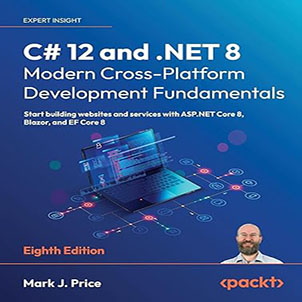Rank the following hiring challenges (1-least challenging; 5-most challenging)?
Likewise, employers are still warming to bootcamp graduates.
Containers are reaching a tipping point
Most candidates leave their existing roles either due to poor management or a lack of growth opportunities.
For those who dont yet understand serverless technologies, do you plan to do further research this year?
If yes, what is the top reason your company struggles to retain talent?
A quarterly report on developer trends in the cloud
Surprisingly, developers were completely split on their knowledge of serverless computing, with half saying they have a strong understanding of it, and the other half not. Unlike containers, serverless seems to be at a much earlier stage in the cycle, with India slightly ahead in the adoption cycle compared to other key developer markets including the U.S., U.K. and Canada.
Despite the popularity of containers, solutions to simplify container management have yet to take off. More than half (52 percent) of respondents using containers have yet to adopt an orchestration platform. However, those who have report significant time savings: 51 percent are saving at least 5 hours a week, with 15 percent reporting saving more than 10 hours.
What is the main reason you attended a bootcamp program rather than a traditional college program?
Nearly half (49 percent) say they are using containers today. Usage is fairly consistent regardless of company size, except for companies between 1-5 employees, which have a slightly lower rate of adoption (35 percent). Of those using them, 40 percent are only using containers for testing and development, while the majority (60 percent) is also using them for production. The biggest reported benefit is that they are very scalable. Challenges include the complications around setting up persistent data storage and network configuration, and respondents applications not being optimized for containers.
Do you feel like your traditional college program adequately prepared you for a high-level software engineering position?
In terms of bootcamp graduates, younger hiring managers seem more open to hiring graduates from them, while older hiring managers are more likely to be neutral to negative on them; 10 percent of hiring managers aged 55-64 said they had an extremely negative viewpoint on them.
Has your company been able to fill positions with coding bootcamp graduates in the past few years?
, with nearly half of developers failing to clearly understand what it is. One of the biggest challenges developers report when it comes to serverless is monitoring and debugging.
Given the quickly growing popularity of containers, we were interested in understanding where adoption trends are as we head into the second half of 2018.
What is the biggest challenge you face using serverless computing?
Which container orchestration platform do you primarily use?
If no, what do you think is the primary reason your company is able to retain talent?
Bootcamp participants feel more prepared for the workforce than college graduates.
Of the 4,853 survey respondents, 55 percent self-identified as developers, 13 percent as working in DevOps and 10 percent each said they were either a student or manager.
Whats your opinion on coding bootcamps?
According to our respondents, a limited talent pool without relevant job/technical skills represents the biggest hiring challenge 39 percent selected it as the No. 1 issue. This vastly overshadowed additional responses; only 18 percent selected a lack of formal software engineering education as their top challenge.
However, nearly half feel it can sometimes be a disadvantage in job interviews.
While monitoring and debugging is the biggest challenge with serverless overall, when we segmented by age groups we saw a slightly different story: the youngest respondents (18-24 years old) said their biggest challenge was depending on a third-party provider, while the oldest respondents (55-64) identified complex migration processes.
Trends in the developer community move quickly. As a developer-focused company, its vital for us to keep up with the technologies and tools that developers and their teams are interested in so we can help them achieve their goals.
While the majority of hiring managers say they make no distinction between bootcamp vs. college graduates, 48 percent have not filled any positions with a bootcamp graduate in recent years.
What do you think is the most beneficial aspect of serverless computing?
Of those who arent yet using containers, 78 percent still say they plan to adopt them in the future, demonstrating that developers are overwhelmingly bullish on containers.
Have you deployed any applications in a serverless environment within the past year?
With graduation season upon us and many new developers entering the job market, we looked at hiring trends for engineers. Eighty-four percent of respondents self-identified as candidates/employees, with the others identified as hiring managers. Salary and growth opportunities are the top things developers look for in new jobs, closely followed by culture. Older candidates care more about the ability to work remotely, while women value growth opportunities over salary.
Yet, bootcamps face an uphill battle with how theyre perceived among employers: almost half of bootcamp graduates say they have sometimes been at a disadvantage because of it during interviews. Additionally, 14 percent of hiring managers said they still prefer traditional college graduates, while 48 percent admitted they have not hired any coding bootcamp graduates in recent years. Hiring managers in India appear to be more open to bootcamp graduates with the U.K. and U.S. less open.
While Kubernetes was most popular overall, the smallest companies (1-5 employees) use Docker Swarm more often (41 percent use Swarm vs. 31 percent that use Kubernetes).
Currents is a quarterly report on developer cloud trends that we created to share our knowledge with the broader community. For the fourth edition, we surveyed nearly 5,000 respondents from around the world about themselves, the tools they use and the challenges they face.
For those using containers, what languages are you most frequently using?
Opportunity for growth and development is the most important thing developers want in their jobs
Ninety-four percent of our respondents self-identified as men, 5 percent as women, and 1 percent as non-binary/other. Seventy-six percent of respondents were under 34 years old, and 6 percent were 45 or older.
, with 49 percent of developers now using them. With container technology and management tools advancing at a rapid pace over the last year, containers are becoming a go-to tool in the developer arsenal.
Hiring is always a big challenge in the tech market, and nearly half of hiring managers (44 percent) said they have problems retaining talent. More than anything else, they said having a great culture is key to keeping developers engaged and happy.
Serverless computing is in a much earlier stage of adoption
Did you attend a traditional college program or a coding bootcamp?
Does your company struggle to retain IT talent?
, so its unsurprising this is the top reason they leave them. Companies that are deliberate about creating long-term paths for their developers are more likely to retain their technical workforce.
What do you think is the most beneficial aspect of containers?
What serverless platform are you primarily using?
Given the ongoing interest around bootcamps as an alternative or additional approach to code education, we were curious what the current sentiment around them was. Interestingly, respondents who attended bootcamps felt far more prepared for a software engineering position than their peers graduating from traditional programs: 61 percent of bootcamp graduates vs. only 36 percent of traditional college program graduates. For women, the most popular reason they use bootcamps is it allows them to enter the coding workforce more quickly (35 percent of women agreed, vs. 26 percent of men). Mens primary reason for going to bootcamps is because they think it will provide them with better skills and experience (29 percent men vs. only 13 percent women).
Do you differentiate between candidates from coding bootcamps and traditional college degrees?
During job interviews, have you ever felt like your bootcamp education has been a disadvantage to you?
Do you feel like your coding bootcamp adequately prepared you for a high-level software engineering position?



